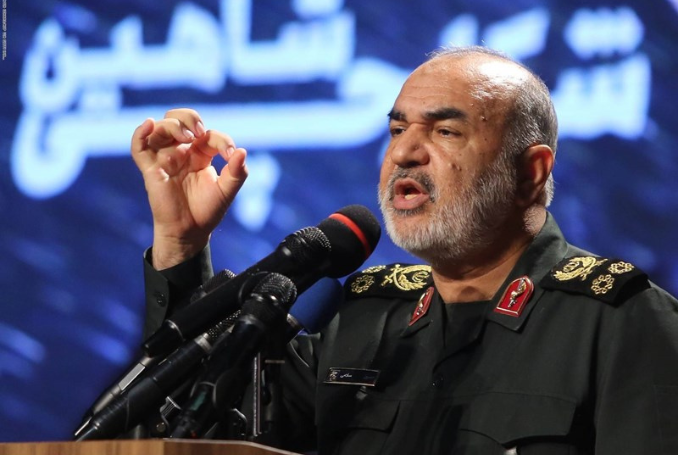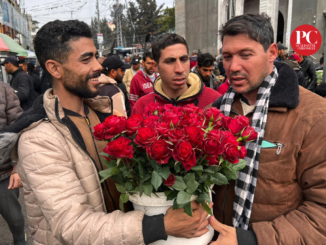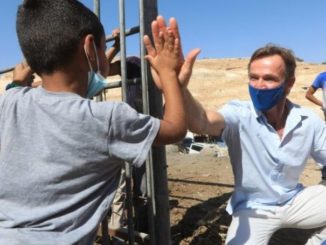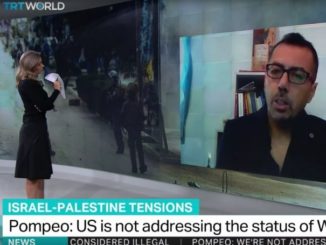
Iran issued a stark warning on Sunday to what it called the “evil front” in response to Israel’s recent aggression, declaring that it would deliver a powerful counterattack.
Meanwhile, a senior Israeli minister suggested a preemptive strike that would include targeting Iran’s nuclear infrastructure.
The commander of Iran’s Revolutionary Guards, Hossein Salami, said that Iran, along with regional resistance movements, now holds a strategic advantage.
He asserted that Tehran and its allies would take all necessary steps to confront their enemies.
“We have learned to deal devastating blows to our adversaries and stand resolute against these satanic forces,” Salami declared, adding, “We will defeat the enemy, and our capabilities will be proven in the arena.”
In his address, Salami emphasized that neither Israel nor the United States should underestimate Iran’s resolve, warning that Tehran would respond decisively to threats from “those who control Tel Aviv and Washington.”
He reaffirmed that his country would continue along its “holy path,” undeterred by opposition from its adversaries.
‘Unchecked Impunity’ – Iran Warns UN that Israel’s Aggression Destabilizes Entire Region
Salami went on to criticize US policy, stating that American leaders, despite their professed commitment to human rights and democracy, are responsible for significant political chaos and conflicts around the world.
He remarked that US sanctions had failed to weaken Iran’s resolve, claiming that Washington’s tactics had ultimately been unsuccessful in breaking the spirit of the Iranian people.
Adding to these warnings, Brigadier General Ali Mohammad Naeini, the spokesman for the Revolutionary Guards, also asserted on Saturday that Iran’s response to Israel would be “inevitable, decisive, strong, thoughtful, and beyond what the enemy imagines.”
For his part, Iran’s Supreme Leader, Ali Khamenei, addressed the issue, taking to the X platform in Hebrew to declare that “America and the Zionist entity will receive a crushing response for their actions against Iran and the resistance front.”
Israel’s Aggression
The situation escalated on October 26, when dozens of Israeli aircraft reportedly bombed multiple targets within Iran.
According to Israeli sources, these strikes focused on air defense systems, missile launch sites, and drone facilities.
In the wake of these Israeli strikes, Iranian political and military leaders vowed to respond.
Western news outlets reported on Iranian preparations for countermeasures, and the US responded by reinforcing its own regional military presence, affirming its support for Israel against any potential Iranian retaliation.
Israel’s Attack on Iran – UN Security Council to Hold Emergency Session
In Israel, former Defense Minister Avigdor Lieberman, leader of the Yisrael Beiteinu party, commented on Sunday that he believed Iran would avoid attacking Israel before the US elections scheduled for Tuesday.
Nonetheless, Lieberman urged that Israel not wait but instead take the initiative to deliver a “crushing response” against Iran’s energy infrastructure and nuclear facilities.
Echoing these calls, Israeli Education Minister Yoav Kish warned that if Iran missteps and attempts to retaliate, it would allow Israel to continue executing its long-term strategy against Tehran.
Doctrine May Shift
Iran has meanwhile suggested that it may expand the range of its ballistic missiles to over 2,000 kilometers and potentially modify its nuclear policy if its nuclear sites are attacked.
In an exclusive interview with the Lebanese news network Al-Mayadeen, Dr. Kamal Kharrazi, head of Iran’s Strategic Council on Foreign Relations, discussed Iran’s strategic approach to the escalating tensions in Gaza and Lebanon, stressing the country’s readiness to respond to any escalation while underscoring Iran’s preference to avoid further conflict.
Iran’s Nuclear Doctrine May Shift in Case of ‘Existential Threat’ – Top Official Kharrazi
Kharrazi highlighted Iran’s military strength and noted potential adjustments in its nuclear policy, should Iran face any “existential threats,” framing his statements in the context of Iran’s commitment to national sovereignty and security.
Addressing the country’s military posture, Kharrazi underscored Iran’s deterrence capabilities, referencing Operation True Promise II as a demonstration of Iran’s missile prowess.
He cautioned that continued hostilities by Israel would be met with a strong Iranian response.
Kharrazi also suggested that adjustments to Iran’s nuclear doctrine could be considered in the face of direct threats, reaffirming Iran’s technical capacity to develop nuclear weapons, though constrained by a Fatwa from Iranian Leader Sayyed Ali Khamenei against nuclear armament.
(PC, AJA)










Be the first to comment